Home is Best: We’ve only just begun
Thank you for your feedback on June’s Vancouver All-Staff Forum (ASF) about Home is Best. We surveyed the 200-plus people who registered, and we’re pleased to say almost 30% responded.
Overall, the results are positive — 65% said the forum was a good mix of presentation, video and storytelling. A large majority appreciated hearing the Garcia family story. However, many also said that you’d like more time for Q & A and discussion about Home is Best.
Based on your feedback, the September 16 ASF will focus on Home is Best, Part 2 — we’ll take a closer look at how we can help our patients/clients in challenging circumstances. We also want to respond to your request for more Q & A/discussion time without losing staff preference for a mix of presentation, video and storytelling. But, how?
At the next forum, would you stay an additional 30 minutes (3:30 to 4 pm) to discuss Home is Best? Let us know by adding a comment at the end of this article. Or, email us at onevancouver@vch.ca.
For details on our ASF survey results, please read on.
Who answered the survey
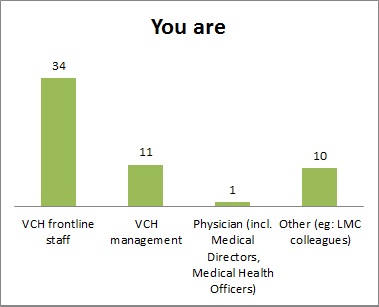
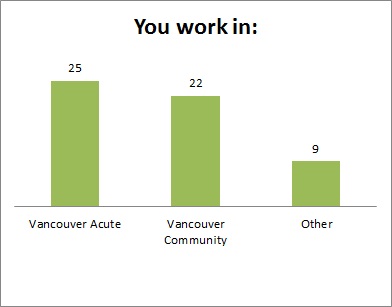
What you’re telling us
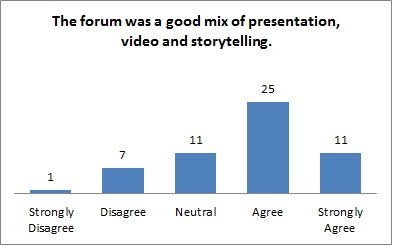
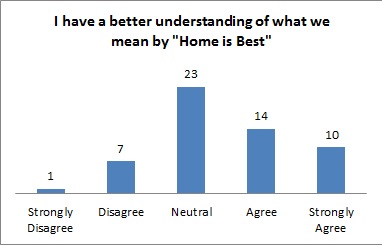
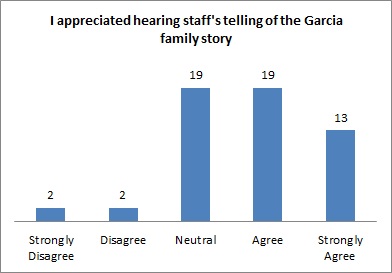
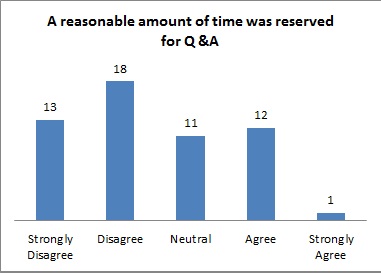
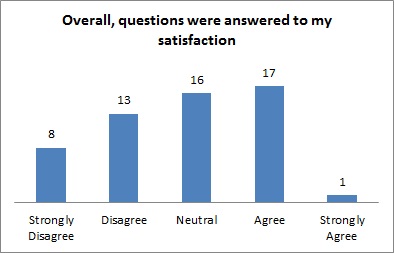
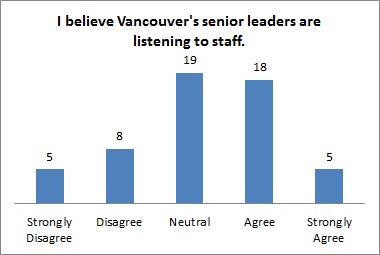

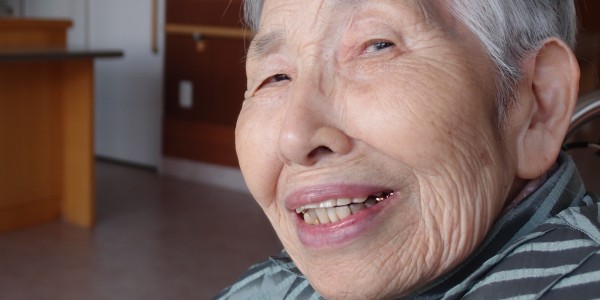
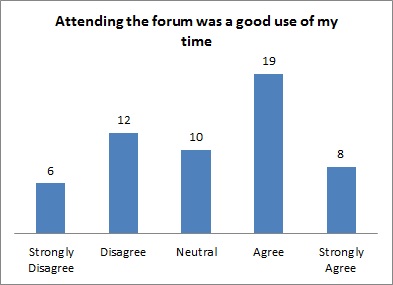
Janet Bristeir
Hi, I saw this article an thought it was interesting
Study: Family caregivers provide $470B in unpaid services
A study released Thursday by AARP says that family caregivers in the United States provided an estimated $470 billion in unpaid services and care to their loved ones in 2013 – more than total Medicare spending in the same year.
The study from AARP’s Public Policy Institute found that in 2013 there were 40 million family caregivers in the United States providing an average of 18 hours of care per week. Forty-six percent of those workers provide complex care activities, such as wound care, managing medications, giving injections and operating medical equipment.
The study found that 60% of all family caregivers are juggling a job and providing care, and that one in five workers leave the workforce earlier than they had planned in order to take care of a loved one – losing an average of $300,000 in income and benefits over their lifetimes.
According to Susan Reinhard, director of public policy for AARP and co-author of the study, longer lifespans and a trend toward smaller families are putting family caregivers in shorter supply. By 2030, the ratio of caregivers to those in need of care will be at 4-to-1, down from its peak of 7-to-1 in 2010.
The study is a meta-analysis of 11 U.S. based surveys of family caregivers from 2009 to 2014. Visit USA Today for the study.